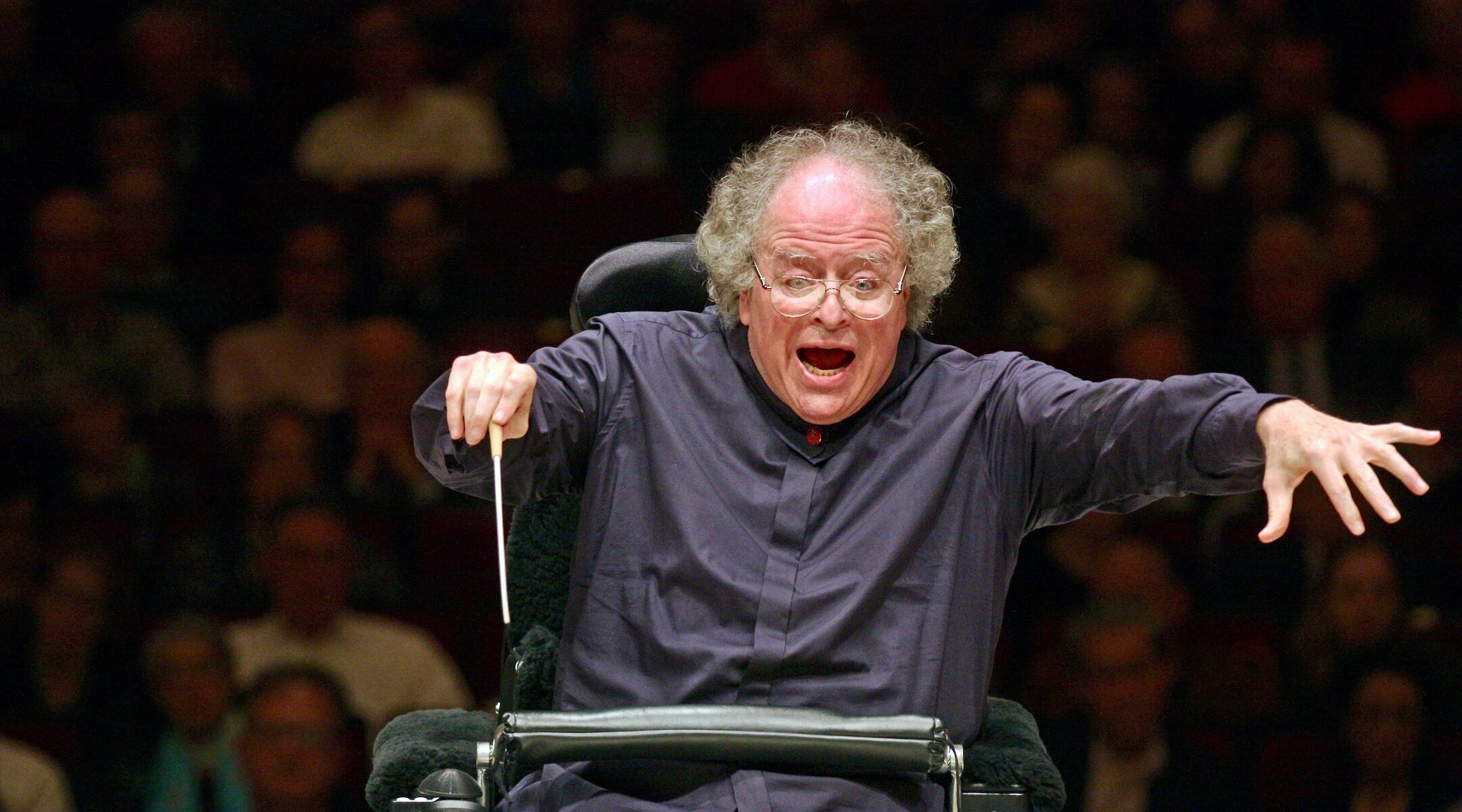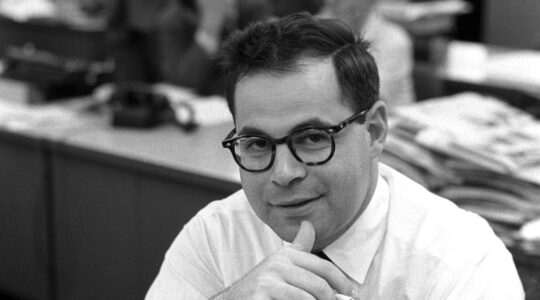(JTA) — James Levine, a cantor’s grandson who led New York’s Metropolitan Opera as artistic director for more than 40 years, has died.
The cause of death was not announced, although Levine had been in ill health for years. He was 77 and passed away on March 9.
Levine was one of the dominant figures in opera and American classical music until being fired in 2018 in the face of sexual misconduct allegations dating back to his guest conductor role at the Ravinia Music Festival near Chicago in the 1980s. Rumors about Levine and sexual abuse, some dating to the 1960s, had circulated for years.
Levine also served as music director of the Boston Symphony Orchestra from 2004 to 2011, and as music director of the Munich Philharmonic from 1999 to 2004.
Levine was born in Cincinnati. His father, Lawrence, was a violinist and dance band leader in the 1930s, and his mother, Helen Goldstein Levine, the daughter of a cantor, had a brief career as an actress. At the age of 10, he made his solo debut during a youth concert at the Cincinnati Symphony Orchestra, performing Mendelssohn’s “Piano Concerto No. 2.”
He attended Juilliard, and served the Cleveland Orchestra as apprentice conductor and assistant conductor from 1964 until 1970. Levine was a faculty member at Cleveland Institute of Music from 1965 until 1972. He made his Met debut in 1971 and was named principal conductor two years later. In 1989, he conducted the Israel Philharmonic Orchestra in a performance of Gustav Mahler’s “Resurrection” symphony recorded in Tel Aviv.
Levine was often compared to Leonard Bernstein as a conductor who was well known outside the rarefied precincts of classical music. New York magazine once wrote that “Levine is known for quietly establishing an extraordinary rapport with his musicians” and his “single-minded devotion to a composer’s conception.”
But his fall from grace was precipitous. After being fired by the Met, he fought back with a defamation lawsuit and never conducted again.
JTA has documented Jewish history in real-time for over a century. Keep our journalism strong by joining us in supporting independent, award-winning reporting.






